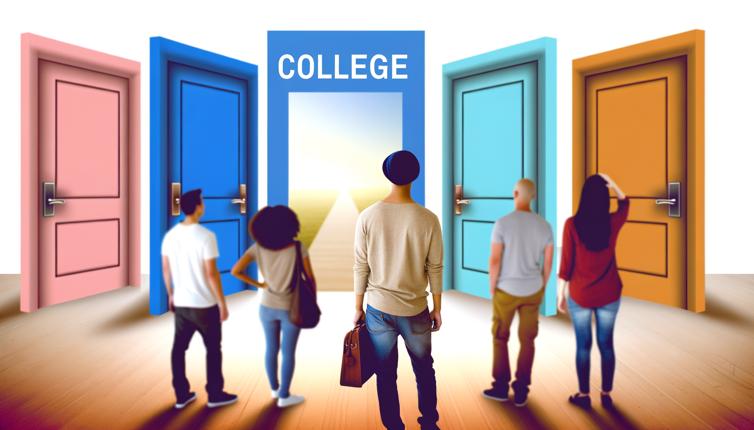Virtual College: A Flexible Learning Experience
Virtual colleges, also known as online colleges, offer a flexible learning experience that allows students to complete their coursework from the comfort of their own homes or any location with internet access. This flexibility is particularly beneficial for those who have work or family commitments, as it allows them to study at their own pace and on their own schedule.,Virtual college programs often utilize various online learning platforms, interactive multimedia materials, and collaborative tools to deliver course content and facilitate student engagement. Through discussion forums, video conferences, and virtual classrooms, students can actively participate in class discussions, ask questions, and receive feedback from professors and fellow classmates.,Another advantage of virtual college is the ability to choose from a wide range of accredited programs and courses offered by institutions from around the world. This allows students to pursue their academic interests and career goals without geographical constraints. Additionally, online programs often offer the opportunity to learn from expert faculty who are leaders in their respective fields.,However, it is important to note that virtual college requires a high level of self-discipline, time management skills, and motivation. Without the structure and face-to-face interaction of a traditional classroom setting, some students may find it challenging to stay motivated and keep up with their coursework. Additionally, technical difficulties or lack of reliable internet access can also pose challenges for online learners.
Traditional College: A Rich Campus Experience
Traditional college, on the other hand, offers a rich campus experience that is characterized by face-to-face interaction, in-person discussions, extracurricular activities, and a vibrant social life. Attending a traditional college provides students with the opportunity to form lifelong friendships, collaborate with peers, engage in campus events, and participate in student organizations and clubs.,In a traditional college setting, students have access to physical resources such as libraries, laboratories, studios, and sports facilities. They can interact with professors during office hours, engage in hands-on learning experiences, and benefit from the academic support services provided by the institution.,Furthermore, the structured nature of traditional college can be advantageous for some students who thrive in a more traditional learning environment. The scheduled class times and regular face-to-face interactions with professors and classmates can help foster accountability, motivation, and active participation in the learning process.,However, attending a traditional college often requires a significant financial investment in terms of tuition, housing, transportation, and other expenses. It may also involve a more rigid schedule, which can be challenging for students with work or family obligations. Additionally, geographical limitations might restrict the choice of institutions and programs available to students.
Choosing the Right Option for You
When deciding between virtual and traditional college, it is essential to consider your personal preferences, learning style, career goals, and lifestyle. Here are some factors to consider:,- Flexibility: Do you require the flexibility to study at your own pace and on your own schedule? Virtual college may be a better fit for you.,- Interaction: Do you thrive in face-to-face interactions and enjoy the social aspect of college life? Traditional college may be more suitable for you.,- Motivation and Self-discipline: Are you self-motivated and disciplined enough to stay on track with your coursework without the structure of a traditional classroom setting? Virtual college may require more self-discipline.,- Financial Considerations: Can you afford the expenses associated with attending a traditional college, including tuition, housing, transportation, and other costs? Virtual college may offer a more affordable option.,Ultimately, the choice between virtual and traditional college depends on your individual circumstances and priorities. It may be helpful to research and reach out to current students, alumni, and professionals in your field of interest to gain insight into their experiences and perspectives.,Regardless of which option you choose, both virtual and traditional colleges can provide a valuable education and open doors to various career opportunities. The key is to make an informed decision based on your unique needs and aspirations.
Conclusion
In conclusion, the decision to pursue a virtual or traditional college education depends on a variety of factors, including personal preferences, learning style, career goals, and lifestyle. Virtual college offers flexibility, a wide range of programs, and the opportunity to study from anywhere, but requires self-discipline and motivation. Traditional college provides a rich campus experience, face-to-face interactions, and physical resources, but can be more expensive and require a fixed schedule. By carefully considering these factors and evaluating your own needs, you can make an informed decision that aligns with your goals and aspirations.









